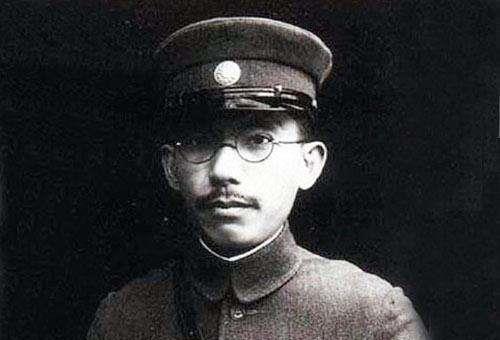There are few people who like the War of Resistance Against Japan, I hope you can pay more attention, leave more messages, thank you
In the previous articles, we mentioned that Tang Shengzhi took over the task of Defending Nanjing, which was a bit of a half-push and half-push, in a word, he was not willing to do it, but Chiang Kai-shek forced him to do it with a soft knife! After the fall of Nanjing, what was his fate?
Speaking of which, let's start at the beginning.

Tang Shengzhi guarded Nanjing, and all military policies were based on coexistence and death with Nanjing, so many of his logistical facilities were not perfect, and all the river ferry ships were transferred to Nanjing, which was a bit of a coexistence and death with Nanjing.
He also never expected that in the middle of the defensive battle, when China was not yet defeated, Chiang Kai-shek issued an order to abandon the city. He also had no choice but to have a special retreat plan.
Overall, Tang Shengzhi's retreat plan was still very specific. He ordered: at 11:00 p.m. on the 12th, most of the army began to retreat, and the 83rd Army retreated at 6:00 a.m. on the 13th. Just in case, Tang Shengzhi also specifically ordered: Every unit that retreats must be led by a commander, and if it is not out of control, it can cross the river with it, the 51st Division, the 58th Division, the 87th Division, the 88th Division, and the Teaching Corps, if they cannot break through from the front, those with boats can directly cross the river and assemble in Chuzhou.
Since it had been decided to abandon the city, the most important thing was to retain strength, and There was nothing wrong with Tang Shengzhi's approach.
However, at that time, communications had been interrupted in many places, many retreat orders could not be issued at all, and in addition, militarily, in war, the two armies were opposed, and a retreat order would have a great impact on the psychology of soldiers. Perhaps a soldier is fighting valiantly against the enemy, and a retreat order may instantly disintegrate all his will.
Tang Shengzhi's retreat was also very dramatic, after the meeting, Tang Shengzhi asked the garrison headquarters to destroy all the confidential documents, and then ordered his mansion to be burned, and finally followed Luo Zhuoying, Zhou Huan and others, all the way to the navy pier of the Xiajiang Coal Port.
Do you remember that Zhou Huan persuaded Tang Shengzhi to leave a small steamer transporting military supplies in the garrison headquarters, and at this time it became Tang Shengzhi's life-saving ship.
After Tang Shengzhi arrived, Tan Daoping had already boarded the boat and waited, and at 9 p.m., the ship took Tang Shengzhi and ran to the north of the river.
In January 1937, on the Luojia Mountain in Wuhan, cold clouds were thick.
In the apartment, Chiang Kai-shek received Tang Shengzhi. Chiang Kai-shek did not blame him, the news of the Nanjing Massacre, the old Tang also got the news, the first words to see Chiang Kai-shek were:
Chairman, I am sorry to the people of the capital, I am sorry to the troops guarding the city, I am a guilty person, I ask the chairman of the committee and punish myself.
Chiang Kai-shek was silent for a long time, when he first guarded Nanjing, no one was willing to do it, and finally fell on Tang Shengzhi's body, and Chiang Kai-shek had a number in mind. The fall of Nanking was sooner or later, and Chiang Kai-shek was well aware of it, but he underestimated the brutality of the Japanese army and knew very little about the chaos of the retreat.
Chiang Kai-shek asked Tang Shengzhi what his plans were, and in his heart he had already decided to abandon it, and Tang Shengzhi also understood in his heart that it would be very good to be alive, so he said that he wanted to return to his hometown in Hunan to pass the rest of the day, and Chiang Kai-shek approved it on the spot.
In a battle of Nanjing, Tang Shengzhi was completely naked in front of the Chinese people.
In the process of Nanjing's defense to the fall, Tang Shengzhi did not make a mistake, and he was not a clueless person.
After the outbreak of the July 7 Incident, when Chiang Kai-shek was still in a meeting, He Yingqin and Xu Yongchang both believed that they could not start a war with Japan. If Japan wanted a partial solution, Nanjing could give Song Zheyuan a compromise.
However, Tang Shengzhi firmly opposed, arguing that Song Zheyuan had moved away from Nanjing's control and was still engaged in compromise activities. If the central government is giving him the power to compromise, then the future of the Song cannot be questioned, and the military aspect must not be neglected.
Many years later, when we look at Tang Shengzhi's views, they are still very insightful.
In any case, in January 1937, for Tang Shengzhi, everything was over, and Tang Shengzhi's back disappeared into the smoke of the War of Resistance.